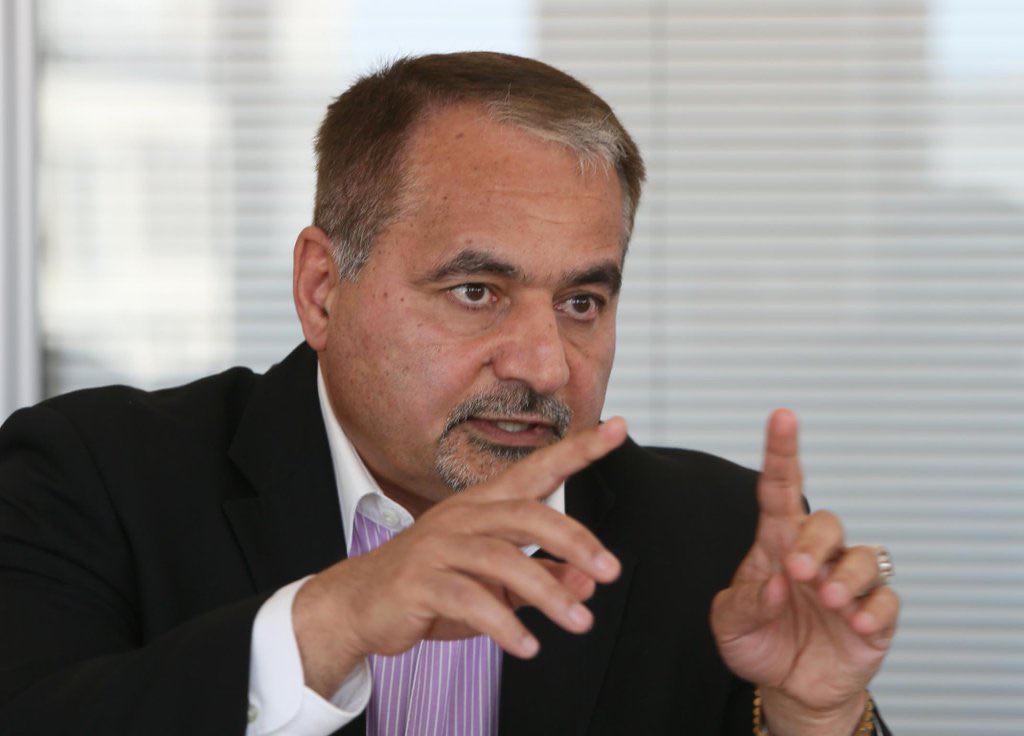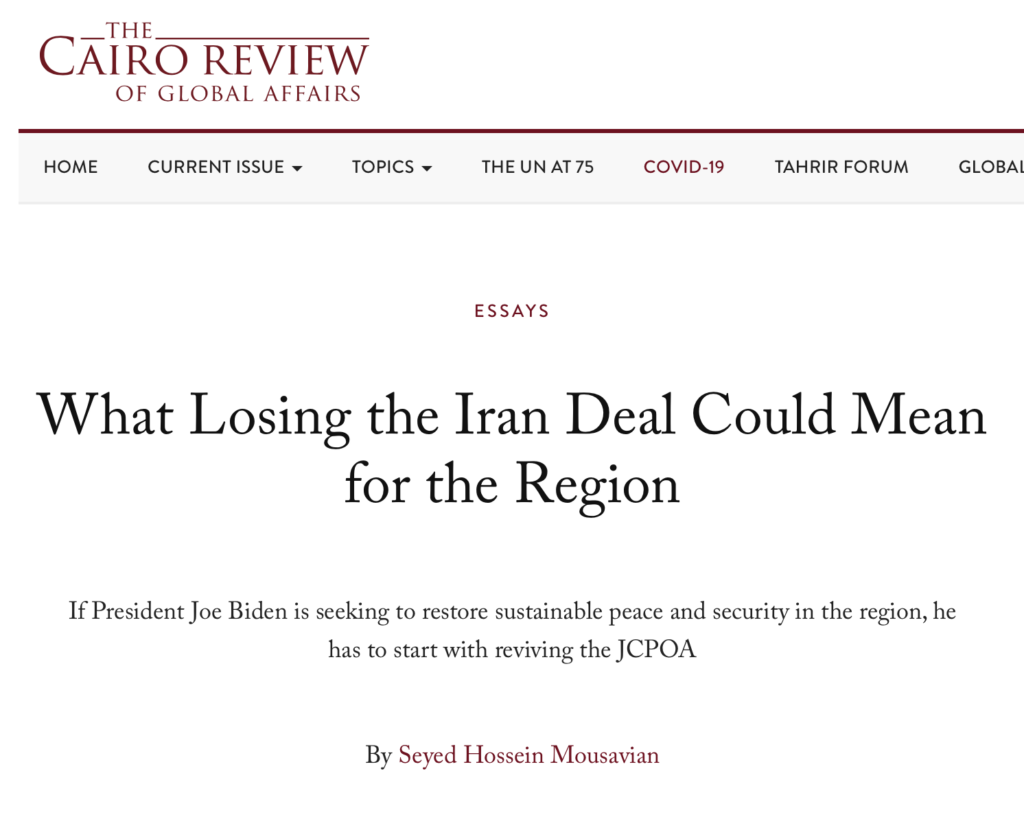“However, a group of rogue elements at the Iranian intelligence Service plotted to assassinate me during my mission in Germany as the Ambassador, but they were unsuccessful,” he wrote. Later, the killing team were arrested in Iran and confessed that they planned to assassinate me in Germany during December 1996 Christmas holidays actually a few months before the Mykonos Court verdict which issued in April 1997.”
Lessons Learned from Listening to Iran
Mousavian observed more broadly that, “The core conflict between Iran and the U.S. is about the region and not the nuclear [issue]. The U.S. has tried to isolate Iran, and Iran has tried to undermine that; 40 years of this has been a losing game for both.”
He pointed out that more than one-third of Iranians are living below the poverty line and so the U.S. should, among other things, “focus on economic investment and technological cooperation rather than sanctioning and weaponizing; …establish friendly relations with all countries rather than creating alliances with some countries to fight other countries. support a new regional security and cooperation system in the Persian Gulf, hand over the responsibilities to the regional countries to maintain peace and stability rather than trying to achieve it with tens of military bases and trillions of dollars…[and] promote civilian diplomacy to promote citizen-to-citizen relationships which would respect local culture rather than imposing Western culture.”
He closed by saying, “What America needs today is a new strategy that does not involve wars or regime changes and operations against sovereign states obsessively trying to control everyone in every part of the world. This is my message to this deterrence summit. Thank you.”
There was some applause, but more important, Mousavian should have left all thinking that some elements of past and present American foreign and defense policies might need a second look.

War on Gaza: Only the US can stop a regional war by reining in Israel
Israel-Palestine war: Israel wants to seize Gaza’s multibillion dollar gas field
A top UN official in New York recently resigned his post, calling the events in Gaza a “textbook case of genocide” in which western governments have been “wholly complicit”. Israeli Prime Minister Benjamin Netanyahu has vowed that his country will not surrender until Hamas is eliminated.
As the horrific onslaught enters its sixth week, the issue of energy resources could add another layer of complexity to the ongoing war.
According to the United Nations Conference on Trade and Development (UNCTAD), significant reservoirs of oil and natural gas have been found off the Gaza Strip and elsewhere under the occupied West Bank.
Read more on The Middle East

An alternative to the proliferation of uranium enrichment in the Middle East
Dr. Mousavian’s article with Frank N. von Hippel in the Bulletin of the Atomic Scientists
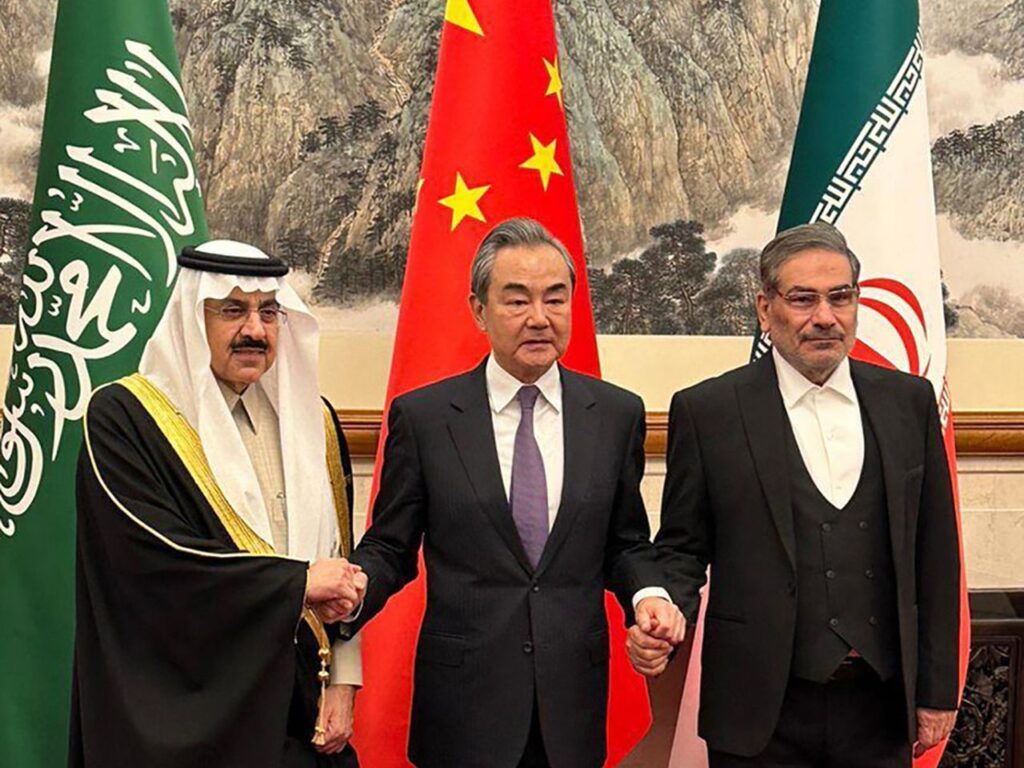
Iran nuclear deal: How to get it right
With policy choices now being shaped by an election year in the US, and given the unpopularity of the Iran nuclear deal in Congress, President Joe Biden has chosen to give up on deal-making that could lay an enduring basis for improved US-Iran relations. Instead, he is relying on short-term transactional crisis management (“no deal, no crisis”). Read more on The Middle East Eye
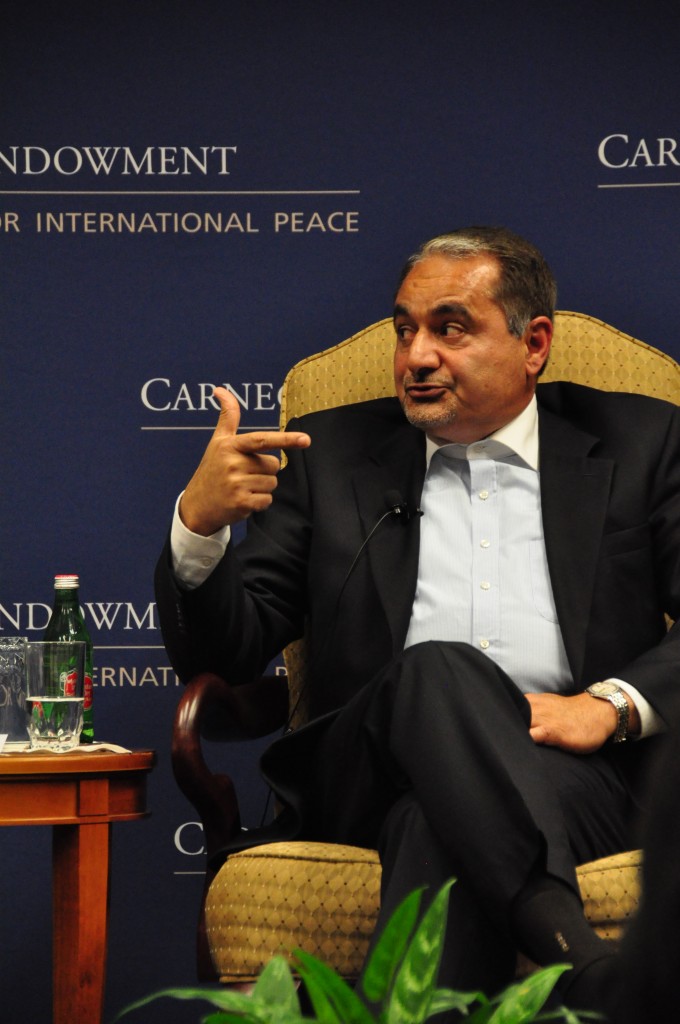
Biden’s ‘no Iran deal, no crisis’ policy is unsustainable
In May 2018, Donald Trump withdrew from the 2015 nuclear deal with Iran (the Joint Comprehensive Plan of Action or JCPOA) and President Joe Biden has yet failed to revive it. The Biden administration has not reached a clear political decision to complete the negotiations. On the one hand it insists“diplomacy is the best option,” while, on the other, it says that the JCPOA is “not on the agenda.” This is a mistake.
Read the article here on Responsible Statecraft
Saudi-Iran deal: After years of tension, a new chapter for the region begins
This month’s agreement came after two years of negotiations between Riyadh and Tehran in Baghdad, and Chinese President Xi Jinping played an important role in concluding the deal in Beijing. As part of the ensuing trilateral statement, Saudi Arabia and Iran agreed to implement a 2001 security cooperation agreement and a 1998 deal bolstering economic, cultural and technological ties.
Read more here on the Middle East Eye.
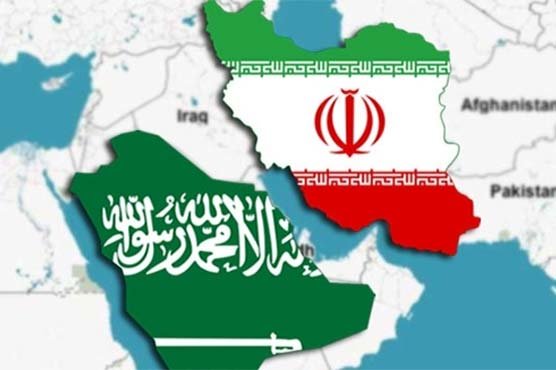
Iran turmoil: The nuclear deal must be saved and bold reforms enacted
Negotiations between Iran and world powers to revive the nuclear deal have turned into a lengthy and fraught process, with no tangible results thus far. Robert Malley, the US envoy for Iran, recently declared that the Biden administration was not going to “waste time” on trying to revive the deal while Tehran was cracking down on protesters at home and supporting Russia’s war in Ukraine.
Read more here


